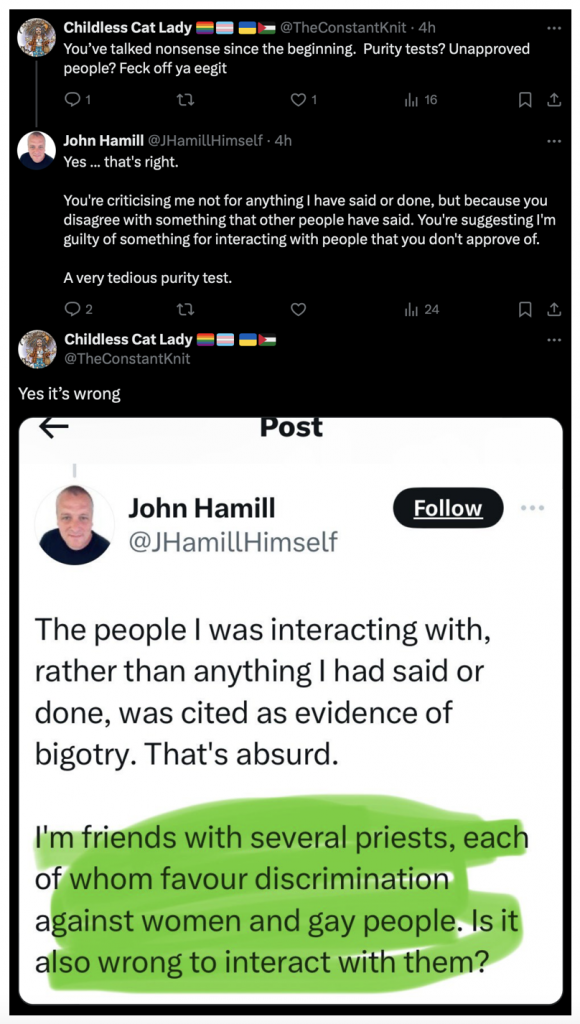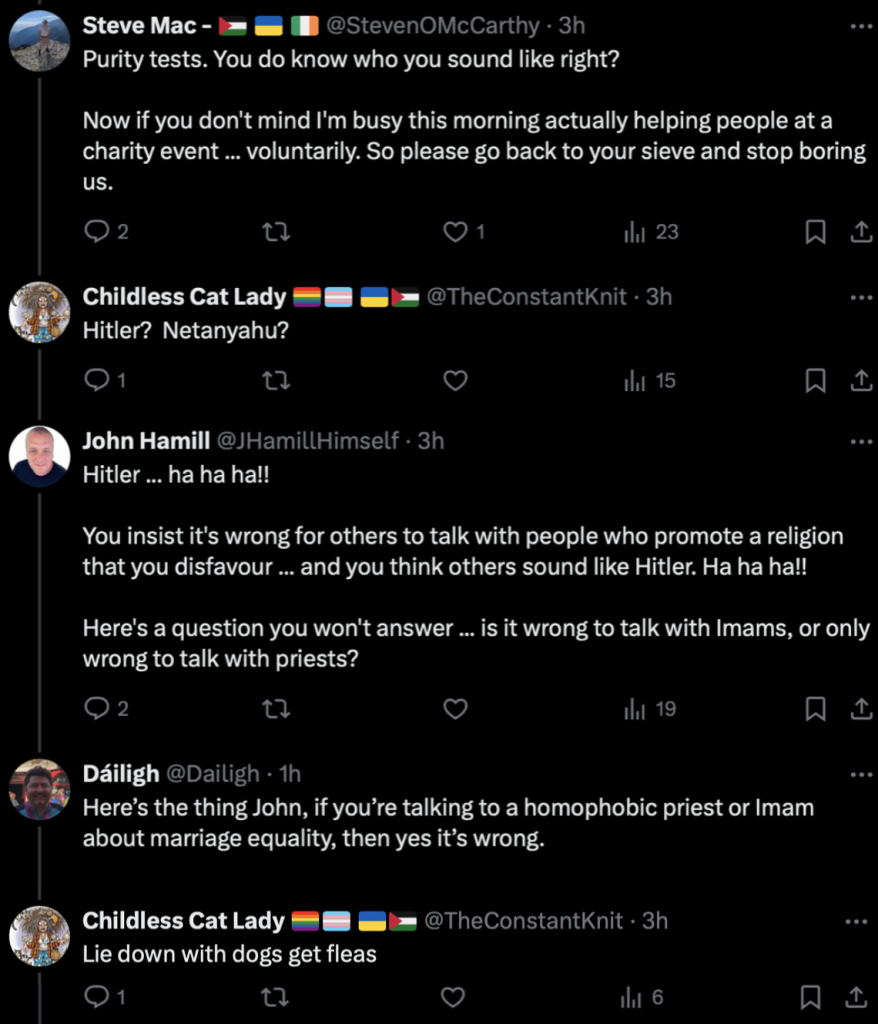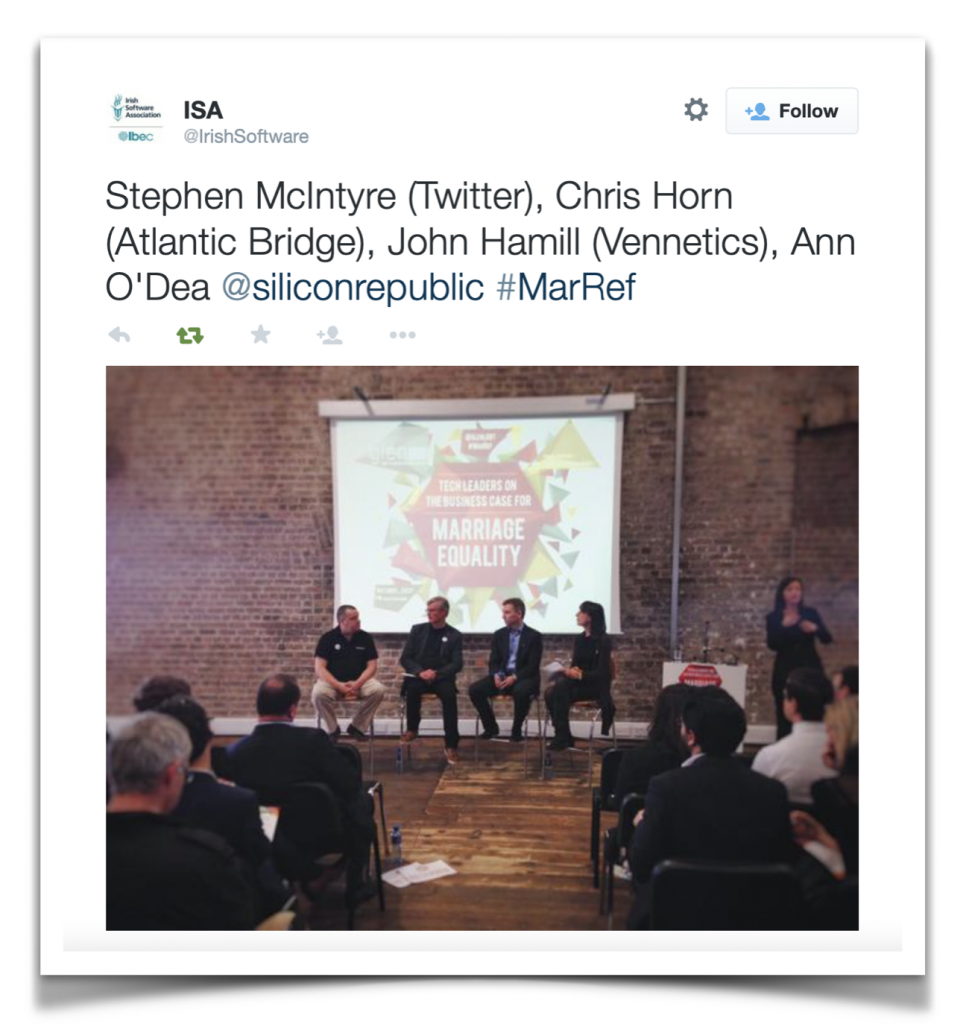Many ideologies have applied political purity tests, whereby those who don’t adhere to a rigid set of beliefs are abused as a heretical out-group. This kind of in-group thought-policing is anathema to enlightenment free-thought values, but unfortunately it has become a feature of the most tribal far-left atheist factions. Of all these extremist behaviours, among the most dull and tiresome purity tests are those that attack people not for what they have said or done, but for who they have spoken with. Much like the Scientologists who insist on members disconnecting from suppressive persons, self-appointed idealogical guardians will associate the usual list of -phobe and -ist appellations to anyone who interacts with an unapproved other. For example, I was recently informed that it is wrong to even speak with a Catholic priest, and that doing so makes me guilty of various forms of bigotry.

I would count Catholic priests among my friends, even though we disagree about many things. I am strongly opposed to the very harmful Catholic teachings that discriminate against women and gay people, not least because these teachings are justified by explicitly misogynist and homophobic scriptures. Nevertheless, I can recognise that many Catholic priests who disagree with me on this point, are good people who wish no harm to anyone. The idea that it is wrong for me to merely talk with such people, or that I would be guilty of several flavours of bigotry for doing so, is utterly absurd. Moreover, this kind of irrational demonising of others can lead to some dark places, as illustrated below.

I’m not sure if an image of “dogs with fleas” in the thread illustrated above, was intended to describe priests, or Imams, or both. Either way, the dehumanisation of specific religious groups is disgusting. This kind of vile commentary has been associated with some of the worst crimes in human history, and speaking this way about groups of religious votaries is appalling. It is always astounding that such tiny groups of idealogical extremists can convince themselves that this kind language is not only justifiable, but morally necessary. Not even the most judgemental Catholic priest would imagine themselves as the ultimate arbiter of which people it will be permissible for others to speak with.
Even at a tactical level, imposing this kind of purity test is also pretty ignorant and brainless. Whereas I was informed in the thread illustrated above that talking to a priest about marriage equality is wrong, I actually spoke with several Catholic priests while I was involved with the marriage equality campaign in Ireland. During events with the Taoiseach (the Irish Prime Minister) and other political and business leaders, outreach towards devout and doctrinaire Catholics was an explicit tactic of the campaign.

I believe that engaging with pious Catholics, with whom the leaders of the marriage equality campaign had many disagreements, was an important contributor to the success of that referendum. Some priests in fact supported the campaign from the pulpit. Catholic priests teach the inerrancy of scriptures that are profoundly misogynist and homophobic, but of course merely talking with Catholic priests is not in any way wrong or bigoted. Conversely, insisting that the votaries of some religious groups are like “dogs with fleas”, and that it is wrong to even speak with such people, is the most crass and vacuous bigotry.
One response to “The Most Tedious Purity Tests”
[…] I published an article that argued against the condemnation of people based on who they had talked to, rather than the […]